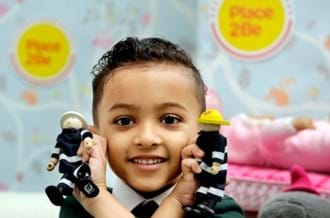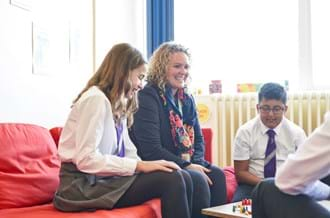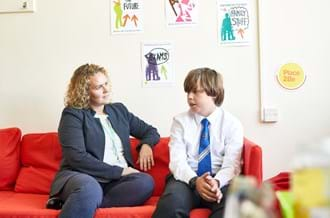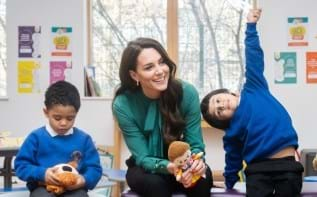Creativity & Wellbeing Week – how can creativity improve children’s wellbeing?
Creativity & Wellbeing Week – how can creativity improve children’s wellbeing?
Place2Be welcomes Creativity and Wellbeing Week’s initiative to raise awareness of ‘creative health’: the idea that engaging in creativity can have a positive impact on our wellbeing and mental health.
Creativity is crucial for children’s healthy emotional development. Research in the fields of neuroscience and psychology has found it plays an important role in helping our minds and bodies develop.
At Place2Be, creativity is an integral part of the play therapy we use and plays a key role in promoting a whole-school approach to mental health. Expressing themselves creatively can help children to:
- develop resilience and feel seen and heard: research has shown that children who engage in creative activities in primary school are likely to have higher levels of self-esteem when they reach adolescence. This effect is boosted when they engage in these activities with caregivers
- build positive social and emotional connections with others: creative play can help children learn about themselves, how they relate to others, and the world around them
- freely express their thoughts and feelings: it can be challenging to express our inner emotional worlds and having non-verbal means of expression can be freeing.
Place2Be’s Art Room team empowers children and young people, families and schools to use creativity as a tool to support wellbeing.
Creative resources for parents and carers
- Try Place2Be’s free Art Room activity resources: These creative art activities can help children, young people, and adults nurture their relationships together whilst having fun. Each activity explores a different theme, such as soothing worries, navigating friendships, and nurturing self-belief.
- Take part in the Creativity and Wellbeing Festival: During the week, there are hundreds of events taking place nationwide. Take a look at the Creativity and Wellbeing Week website to find out if there are any local free activities near you.
Resources for school staff
- Sign up for our free mental health training for school staff: Our Mental Health Champions Foundation course is free for school staff, youth workers and trainee teachers. After the course, you'll have access to an online community platform with wellbeing resources including free creative health activities, lesson plans and video guides.
Help develop a whole-school approach to mental health
At Place2Be, we offer the opportunity to become a Place2Be partner school. We provide our partner schools with a range of expert support services that contribute to a whole-school approach to mental health. This can include direct in-school support for children and young people, expert training for staff, and specialist resources.
News & blogs

Launch of good practice guide for schools - supporting displaced families
Place2Be is proud to have collaborated with Save the Children UK in the creation of a good practice guide.
Read more
The £51 billion case for improving children’s mental health
Read the latest PBE report on how preventing mental health decline in children is also an investment in society's future.
Read more
Back to school? Addressing emotionally-based school avoidance
Place2Be addresses Emotionally-Based School Avoidance (EBSA) with community-based counselling.
Read more



